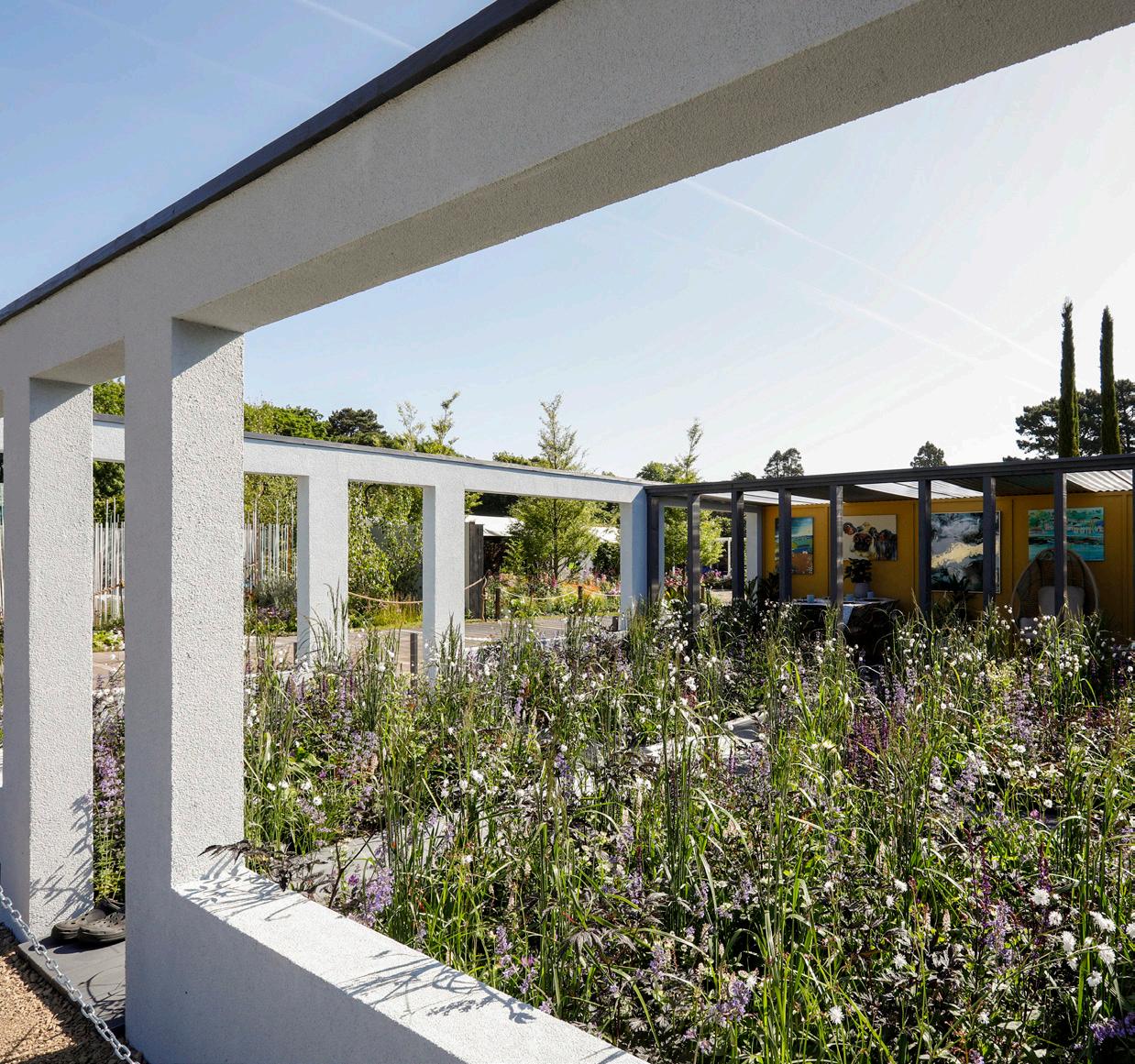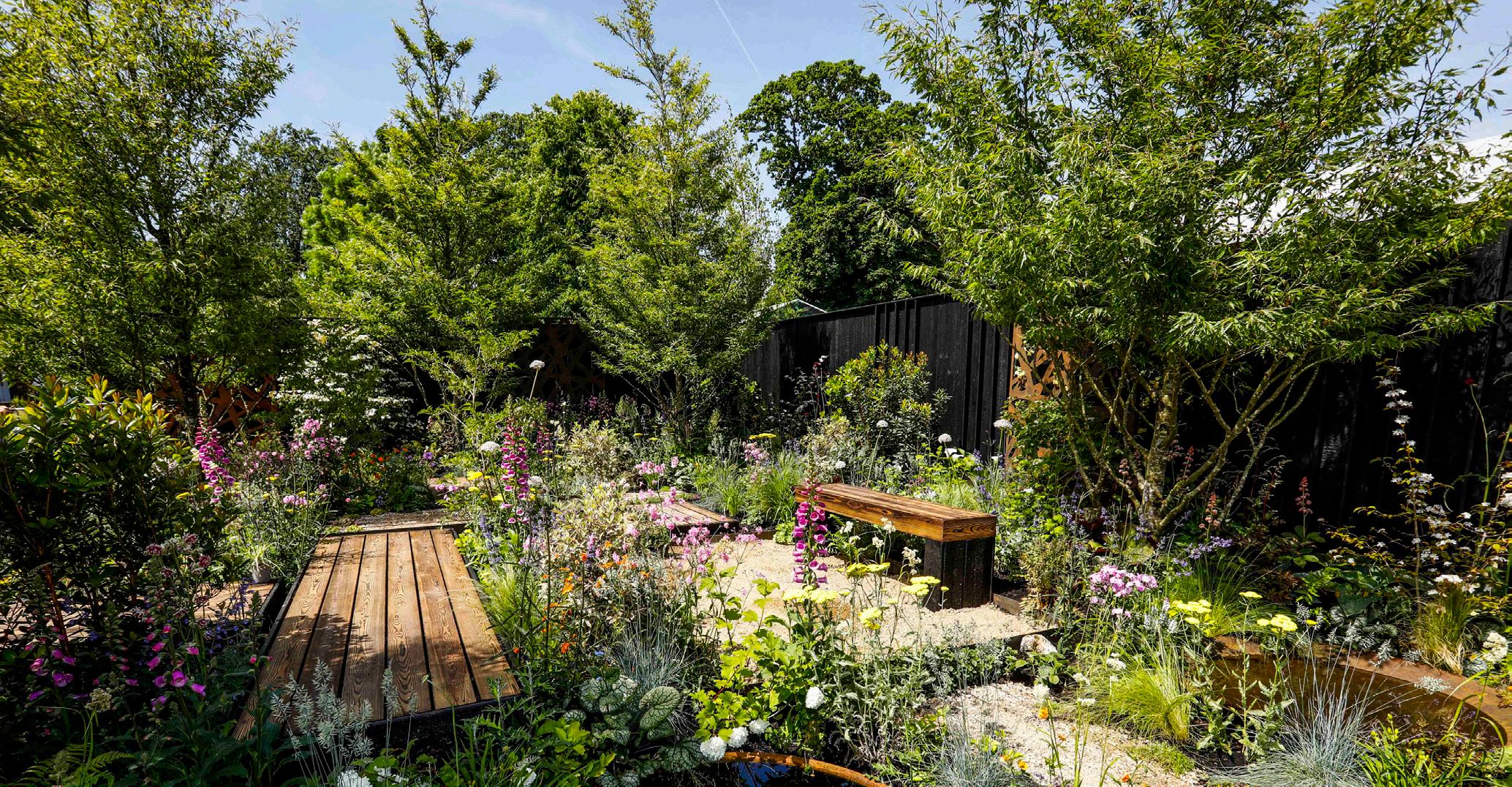
2 minute read
BLOOM 2023 GARDENS


Advertisement





National Strategy for HORTICULTURE 2023-2027
The collective vision for the Horticulture industry:

About this strategy
benefits include employing workers in local communities, producing healthy produce for a healthy diet, and positively impacting wellbeing through the positive mental and health benefits of gardening and recreation including for those with special needs.
System is profitable throughout (economic sustainability), has broad-based benefits for society (social sustainability) and has a positive or neutral impact on the natural environment (environmental sustainability).
Food Vision 2030 called for a new National Strategy for Horticulture to leverage its potential for growth and contribution to climate change mitigation.
If all the actions in the Strategy are carried out, the future for horticulture in Ireland is positive, with anticipated growth of 30% in farmgate value from €529 million in 2022 to €688 million by the end of 2027.
Horticulture is one of the most carbon efficient sectors in Irish Agriculture and can have a further positive environmental impact by expanding environmentally sound practices and adapting developing technologies.
Economic viability is threatened due to tight margins and increasing input costs –for the horticulture industry to be enduring, it must be financially viable. Finally, the sector’s social
Building on the independent report commissioned by Minister Hackett and produced by KPMG on Opportunities for the Irish horticulture Sector , and KPMG’s subsequent Prioritisation analysis , this Strategy addresses the cross-cutting factors faced by the horticulture industry to grow a more profitable, value-added sector, driven by sustainability and innovation. The strategy’s approach is driven by the belief that the source of increased sustainable output can only be market-led and as a result of increased collaboration, with growers and related businesses, ably supported and assisted by Government and State Agencies. This new National Horticulture Strategy is closely aligned with the over-arching agri-food industry strategy –Food Vision 2030. Three distinct areas of sustainability underpin Food Vision 2030: environmental, economic and social, in keeping with the UN FAO model for sustainable food systems. A Sustainable Food
4 National Strategy for Horticulture 2023-2027
Eight cross-cutting Key Strategic Actions (KSA) will drive change and growth across all the horticulture industry’s sub sectors leading to environmental, economic and social sustainability. These eight Strategic Actions have been distilled from the 80 plus actions KPMG initially identified in their report Opportunities for the Irish Horticulture Sector. This distillation, and subsequent ranking in order of effectiveness and cost, is a result of extensive public and stakeholder consultation (July-December 2022) and a multi criteria analysis by KPMG (completed April 2023).
8 Key Strategic Actions

7 I ntegrate Horticulture back into Agriculture Knowledge and Innovation System AKIS
8 Support innovation and diversification
6 Better data and information for better insights
5 Research and Development for the industry
3 Establish the framework for a permanent non-EEA seasonal workers’ scheme for the horticulture industry to ensure a reliable supply of skilled seasonal workers in the short to medium term while innovation and research into automation is intensified
4 Review horticulture course availability and suitability for a modern dynamic sector, enabling the educational platforms to attract talent that will drive the horticulture sector to realise its true potential
1 Strengthen the position of the grower in the marketplace
2 Develop a written charter between growers, consolidators and retailers, and increase consumer demand for local, in season, fresh, quality fruit, vegetables and plants










